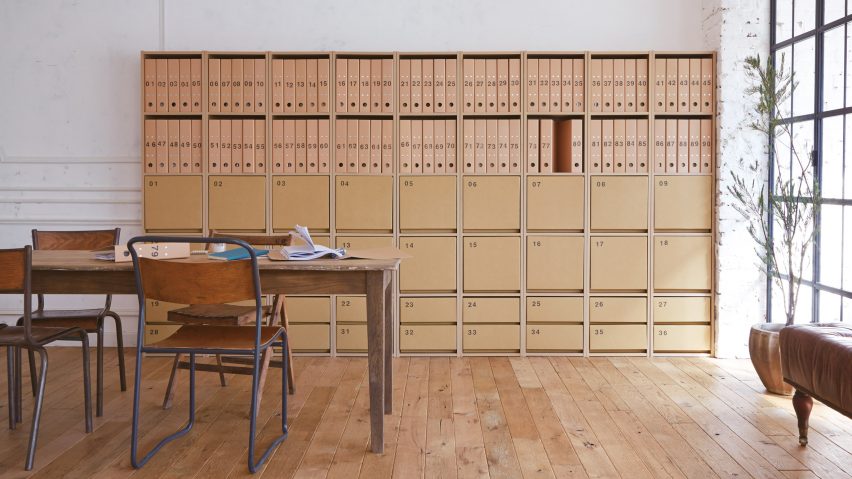Dezeen promotion: Japanese brand Muji has created a range of storage furniture and containers for organised spaces that are based on the basic unit of construction for Japanese homes.
Muji's storage solutions come in the form of various shelving systems and corresponding storage containers, which are designed to fit inside them.
The storage furniture and containers are suitable for all home environments, including the kitchen, living room, dining room, wardrobe, bathroom, hallways, children's rooms and offices.
The brand's main storage furniture items include a stainless steel unit shelf, a stacking shelf and a pulp shelf.
Corresponding storage containers include boxes made from soft polyethylene, polypropylene, stainless steel and a polyester cotton mix, which are all designed to last long-term.
Muji also offers a natural storage range of baskets made of hand-woven rattan – a material that is both economical and ecological, used for centuries to make homeware for to its lightweight and durable properties.
All containers are available in three sizes and fit neatly on a shelf unit if placed vertically, or on a stacking shelf if placed on its side.
Other storage containers include a drawer trolley, acrylic storage drawers, a zinc box and a file box.
"Organising the living space in the home creates a space which can be used freely, allowing you to spend time relaxing or enjoying hobbies and family time," said the brand.
"Also, by thinking about the way you use your things one at a time and devising ways of storing them so that they are readily at hand at any time, the efficiency of your life will improve, allowing you to live with a feeling of being attached to your things."
Muji proposes using its stand up storage for keeping frying pans and pots, ridding of the need to stack them, making it easier to see at a glance where things are and to take out the required item.
The brand also suggests storing items such as lunch boxes, water bottles, coffee and tea cups together according to use, allowing the user to take out what they need, but also according to colour and material – grouping white tableware and wooden tableware, for example.
The standard dimension of the shelving modules are based on "shaku" – a unit of measurement used in the construction of Japanese homes and their items. One room generally measures at six shaku, which is 182 centimetres, while a half room is three shaku – or 91 centimetres.
The height of a unit shelf is based on the height of a "kamoi", or door, in Japanese homes, and measures at 175 centimetres.
The shelf width measures at 86 centimetres and is based on the width of a half "ken" – another Japanese unit of measurement. At 91 centimetres it can fit neatly within the width of one ken (182 centimetres), between two columns.
The storage item modules are sized to fit snugly inside the storage furniture, measuring at 175 centimetres by 86 centimetres. Others are 26 centimetres by 37 centimetres in order to fit on the shelves.
"The result of this kind of unseen ingenuity is that Muji shelves fit effortlessly into the living space, with the polypropylene storage containers fitting neatly into the shelf units," said the brand.
For more information on Muji's storage furniture and containers, visit the brand's website.
Partnership content
This article was written by Dezeen for Muji as part of a partnership. Find out more about Dezeen partnership content here.

